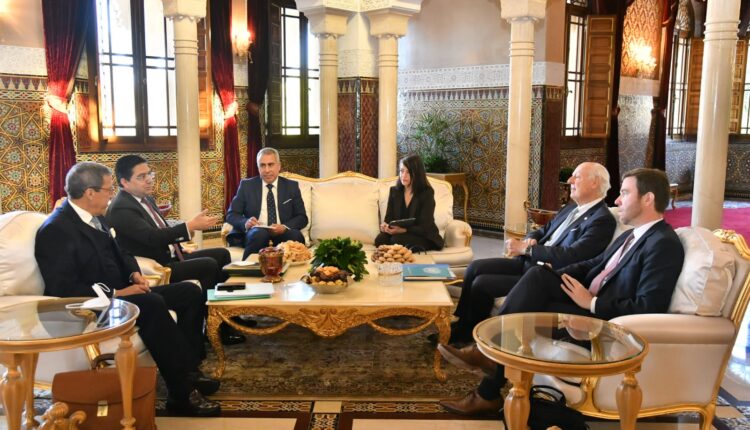Nasser Bourita, Minister of Foreign Affairs and Cooperation of Africa and Moroccans Abroad, put the words “the Kingdom’s constants” and cemented the Kingdom’s concessions to a peaceful settlement of the Moroccan Sahara question, under the exclusive auspices of the United Nations, with calm and diplomatic stability in support of international legitimacy in support of Moroccan sovereignty over his Saharan territory.
Mr. Staffan de Mistura’s letters as the UN Secretary-Personal General’s Envoy to Moroccan Sahara were clear and firm, and they were in line with international legitimacy and the spirit of cooperation demonstrated by Morocco and the UN in order to resolve Algeria’s spectacular aggression.
The Moroccan position, as stated in King Mohammed VI’s letters on the 45th and 46th anniversary of the Green March, was accurate and deeply diplomatic, according to the statement by the Ministry of Foreign Affairs.
The first is Morocco’s commitment to resuming the political process, which sends a strong message that Morocco is unconcerned about all the “splinters” that Algeria and the Polisario are carrying out behind the wall as part of the so-called “concentrated cuts,” which go beyond the “Polisario” extremist group’s activities on Algerian territory.
In contrast to Algeria, which is home to an armed group that threatens the security and safety of a UN Member State, Morocco’s commitment to the political process is a clear expression of its commitment to international legitimacy, putting it in a position of aggression.
The second basis mentioned in the Foreign Ministry communiqué, which is based on royal speeches on the 45th and 46th anniversary of the Green March, is that the political process must resume “under the exclusive auspices of the United Nations body,” sending a strong signal to all parties seeking to involve regional or continental bodies in this triggered conflict. This is primarily the case of Algeria, which is attempting to involve the African Union in the matter, as well as a reference to certain European Union parties that are occasionally attempting to adopt political positions in this case, despite the fact that they are far from it.
The third point is that the Moroccan self-government initiative is the foundation for a political solution. It is important to emphasize that Morocco has been able to impose the draft solution that it has submitted because it is the only realistic project that has been recognized by the major powers, most notably the United States, as serious and credible.
This foundation is also consistent with the UN trend of finding a negotiated political solution that is acceptable to all parties involved, which runs counter to some obvious and transcending Security Council resolutions, particularly those relating to self-determination through referendum, whose implementation has become impossible and is contrary to the spirit of mediation and UN welfare.
The fourth is the round tables in the presence of the four parties, in accordance with the United Nations approach at a time when Algeria opposes this approach because it is ineffective. In stark contrast to reality and illusion, the latter engaged in various forms of financing, arming, and obstructing a solution to the Sahara conflict while claiming not to be a party to the conflict.


